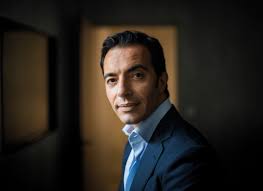A few days before the Africa Financial Summit (AFIS) 2025, which will be held on November 3 and 4, 2025 in Casablanca, the economic capital of Morocco, its initiator and CEO of the Jeune Afrique Group, Amir Ben Yahmed, reflects on the ambitions of this pan-African platform. At the heart of the project: financial sovereignty, mobilization of domestic capital, acceleration of continental integration, and Africa’s place in the global technological revolution. A brief, direct exchange with a key player in the African financial ecosystem.
AFIS is being held for the second consecutive time in Morocco. What motivates this choice?
Morocco has emerged as a strategic financial center for the continent. It is a country that has built a strong ecosystem, supported by efficient institutions focused on Africa and even on South-South cooperation. The Casablanca Stock Exchange, as well as groups like Attijariwafa Bank and Bank of Africa, embody this pan-African vision and the ability to position themselves at the continental level. Organizing AFIS again in Morocco is extending a constructive dynamic: that of a dialogue between public decision-makers, regulators, bankers, insurers, and investors who share the same ambition: to build a sovereign and integrated African finance. This choice reflects our desire to anchor AFIS, designed in partnership with the IFC, in African ecosystems that embody stability, openness, and regional cooperation.
African financial sovereignty is at the heart of the program. How do you translate this into concrete actions?
African financial sovereignty is not a slogan, it is a strategic orientation aimed at enabling the continent to finance its development priorities itself. This first requires mobilizing African savings – pension funds, insurance, sovereign wealth funds – to be invested locally in infrastructure, energy, agriculture, or SMEs. Then, this ambition involves better coordination between regulators and operators to remove regulatory barriers that still limit the flow of capital. Through AFIS, we want to create a collective dynamic, outline a common roadmap that brings together all actors in the African financial industry around the same goal: to build an integrated, resilient African financial system capable of competing globally.
More than a thousand decision-makers are expected. What do you expect from this face-to-face between the public and private sectors?
This dialogue between public decision-makers and private actors is at the heart of the purpose of AFIS. We are convinced that the development of a strong African financial system relies on close collaboration between those who define the rules and those who operate on the ground. It is not a confrontation but a tête-à-tête. We advocate for the exchange of ideas but seek cooperation to move from a logic of observation to a logic of action: strengthen banking, improve the flow of capital, increase the capacity of African institutions to finance growth. AFIS is not just another conference: it is a platform where, edition after edition, a shared vision of the continent’s financial future is built.
African pension funds, insurance, and sovereign wealth funds hold significant resources. Why do they remain underinvested on the continent?
Africa has a significant capital reservoir, estimated at several trillion dollars. But these funds still circulate too little within the continent. Several obstacles persist: market fragmentation, sometimes inadequate regulatory frameworks, lack of coordination between economic zones. As a result, a significant portion of African savings remains invested outside the continent despite immense needs. The challenge is to create the conditions for a Kenyan pension fund to invest in Ghana or for an Ivorian insurer to allocate resources to Morocco. Financial integration – supported notably by PAPSS or AELP – is key to making these domestic resources a driver of African development.
Digital and AI are disrupting the global finance. What role for Africa?
Africa has often skipped stages, and finance is a driving force. With over a thousand fintechs and 47% of funds raised by African startups in 2024, the continent is at the forefront of innovation in payments, insurance, digital credit, or wealth management. AI opens a new era: analysis, risk management, financial inclusion. But for this transformation to benefit everyone, acceleration is needed: infrastructure, talent development, data, governance frameworks adapted to local realities. This is a central theme of the summit: how to reconcile innovation and stability? How to make African digital finance a lever for integration rather than a factor of fragmentation?
If you had to summarize the ambition of AFIS 2025?
To move from a model of dependence to a model of co-construction, from a fragmented landscape to a coordinated architecture, so that African finance becomes an instrument of economic power in the service of the continent’s development.


